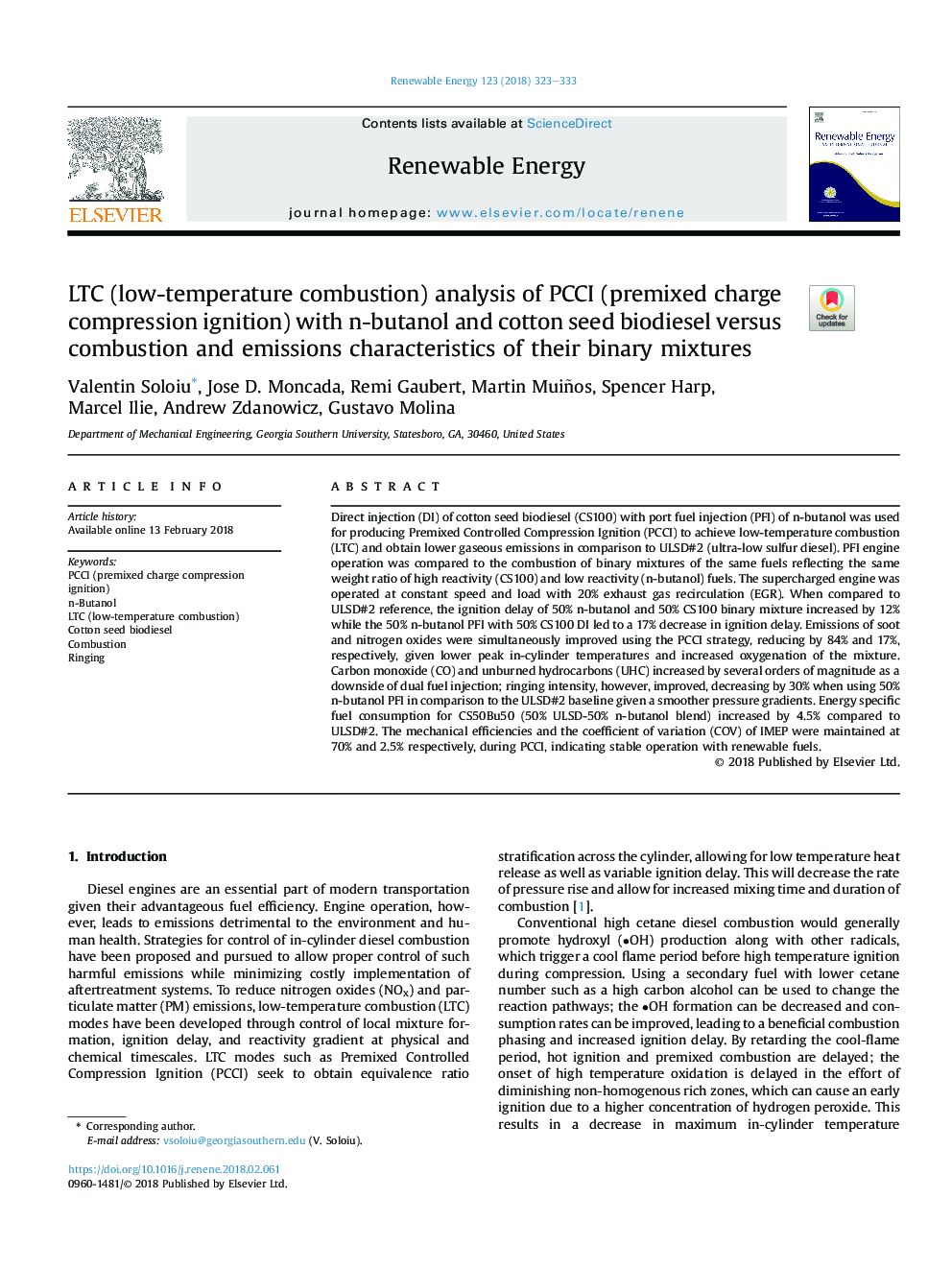| کد مقاله | کد نشریه | سال انتشار | مقاله انگلیسی | نسخه تمام متن |
|---|---|---|---|---|
| 6764550 | 1431581 | 2018 | 11 صفحه PDF | دانلود رایگان |
عنوان انگلیسی مقاله ISI
LTC (low-temperature combustion) analysis of PCCI (premixed charge compression ignition) with n-butanol and cotton seed biodiesel versus combustion and emissions characteristics of their binary mixtures
دانلود مقاله + سفارش ترجمه
دانلود مقاله ISI انگلیسی
رایگان برای ایرانیان
کلمات کلیدی
موضوعات مرتبط
مهندسی و علوم پایه
مهندسی انرژی
انرژی های تجدید پذیر، توسعه پایدار و محیط زیست
پیش نمایش صفحه اول مقاله

چکیده انگلیسی
Direct injection (DI) of cotton seed biodiesel (CS100) with port fuel injection (PFI) of n-butanol was used for producing Premixed Controlled Compression Ignition (PCCI) to achieve low-temperature combustion (LTC) and obtain lower gaseous emissions in comparison to ULSD#2 (ultra-low sulfur diesel). PFI engine operation was compared to the combustion of binary mixtures of the same fuels reflecting the same weight ratio of high reactivity (CS100) and low reactivity (n-butanol) fuels. The supercharged engine was operated at constant speed and load with 20% exhaust gas recirculation (EGR). When compared to ULSD#2 reference, the ignition delay of 50% n-butanol and 50% CS100 binary mixture increased by 12% while the 50% n-butanol PFI with 50% CS100 DI led to a 17% decrease in ignition delay. Emissions of soot and nitrogen oxides were simultaneously improved using the PCCI strategy, reducing by 84% and 17%, respectively, given lower peak in-cylinder temperatures and increased oxygenation of the mixture. Carbon monoxide (CO) and unburned hydrocarbons (UHC) increased by several orders of magnitude as a downside of dual fuel injection; ringing intensity, however, improved, decreasing by 30% when using 50% n-butanol PFI in comparison to the ULSD#2 baseline given a smoother pressure gradients. Energy specific fuel consumption for CS50Bu50 (50% ULSD-50% n-butanol blend) increased by 4.5% compared to ULSD#2. The mechanical efficiencies and the coefficient of variation (COV) of IMEP were maintained at 70% and 2.5% respectively, during PCCI, indicating stable operation with renewable fuels.
ناشر
Database: Elsevier - ScienceDirect (ساینس دایرکت)
Journal: Renewable Energy - Volume 123, August 2018, Pages 323-333
Journal: Renewable Energy - Volume 123, August 2018, Pages 323-333
نویسندگان
Valentin Soloiu, Jose D. Moncada, Remi Gaubert, Martin Muiños, Spencer Harp, Marcel Ilie, Andrew Zdanowicz, Gustavo Molina,